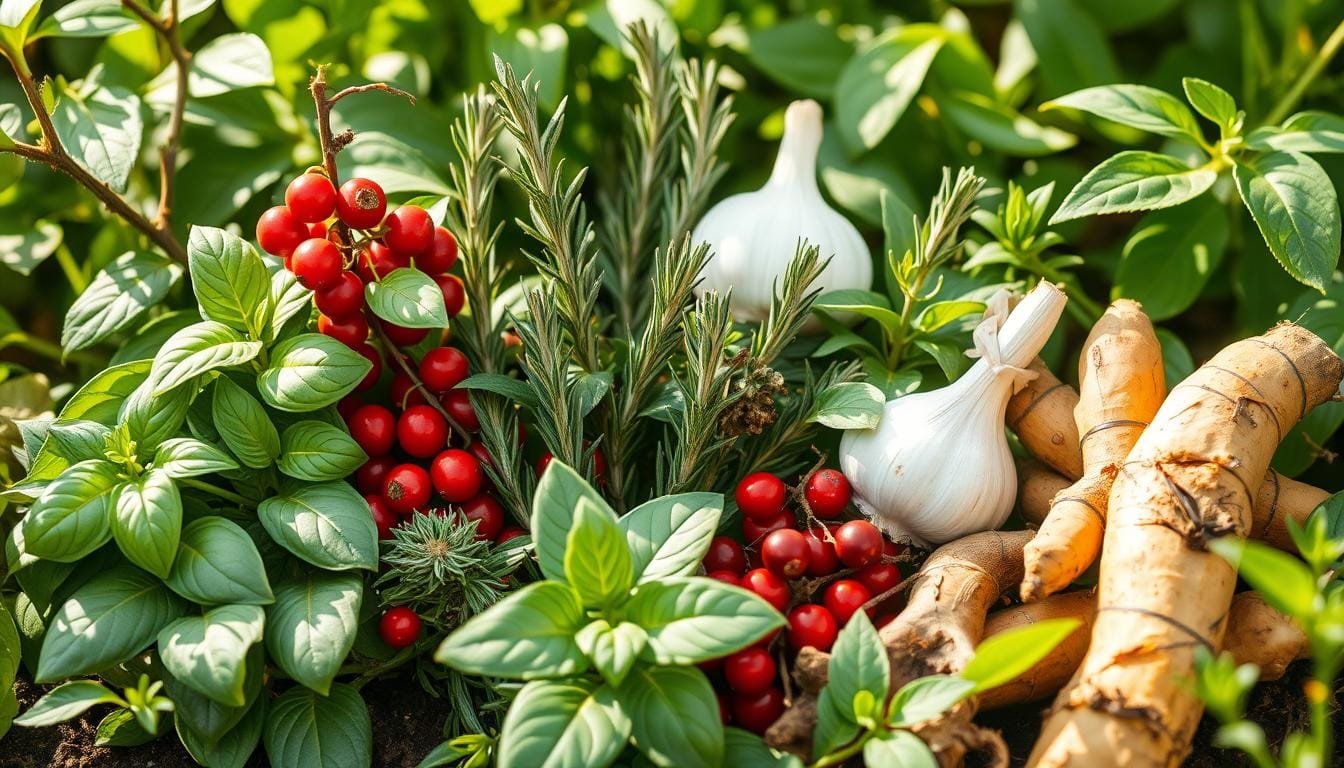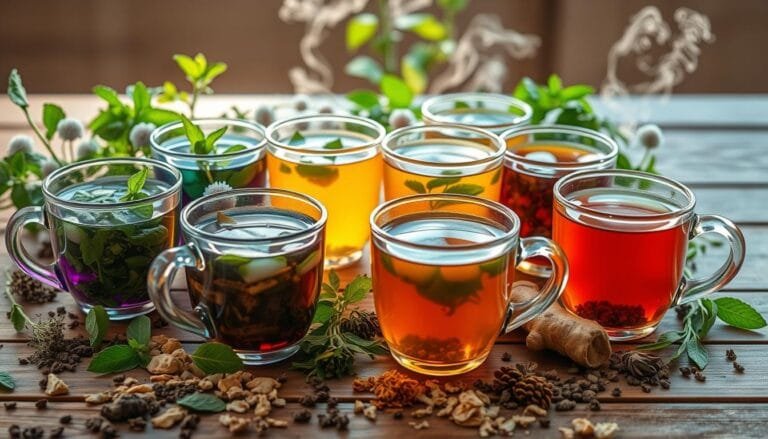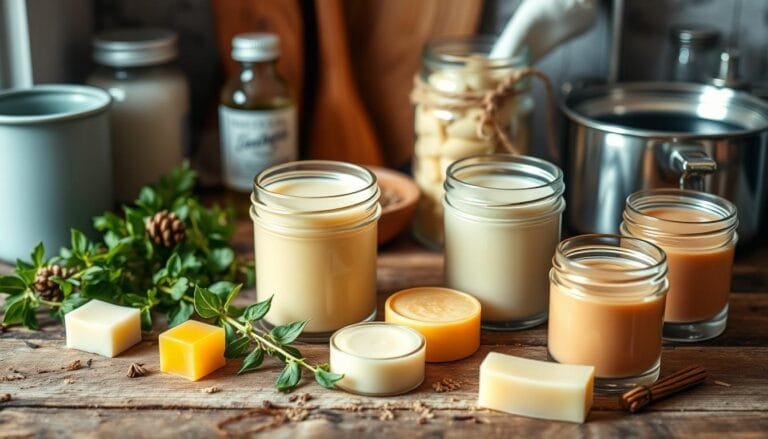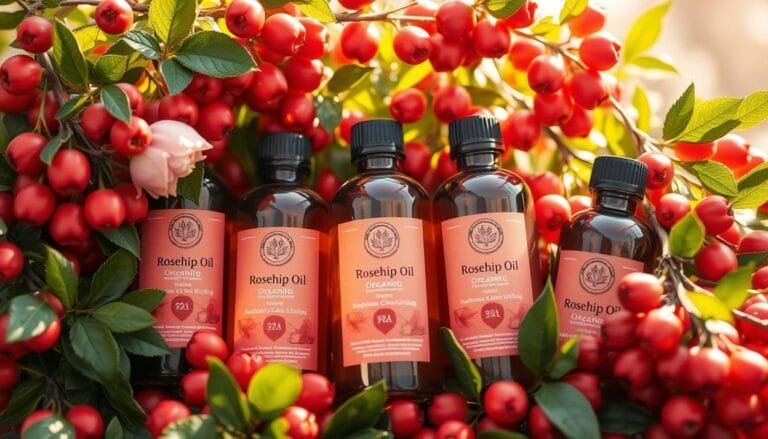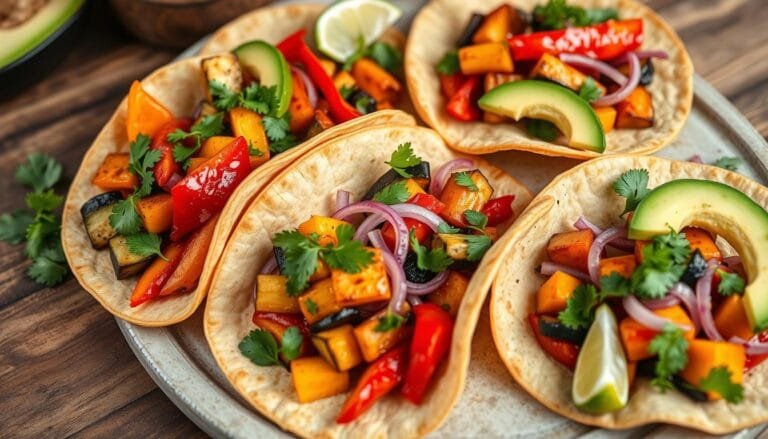I’m always looking for ways to keep my heart healthy. I’ve found that natural herbal remedies can be very helpful. These heart-healthy herbs have been used for ages and are backed by science. They’re a great addition to a healthy diet and regular exercise.
Keeping our hearts healthy is key to feeling our best. I think using natural remedies is a smart way to do this. By adding these herbal supplements to our lives, we can protect our hearts and help others do the same. Let’s explore how nature can help us stay heart-healthy.
Understanding the Importance of Natural Heart Health Solutions
Traditional medicine has always seen the value of natural remedies for heart health. Modern medicine has made big strides in treating heart issues. But, the benefits of natural alternatives should not be ignored.
The Role of Traditional Medicine in Cardiovascular Care
For ages, traditional healers have used nature’s gifts to help with heart health. Herbs, minerals, and plants have been used to help the heart. They help with high cholesterol, blood pressure, and inflammation.
Why Consider Natural Alternatives
Natural remedies might have fewer side effects than some medicines. They can work alongside traditional treatments for heart issues. But, it’s important to consult with a healthcare professional before starting herbal supplements, if you’re on heart medications.
| Potential Benefits of Natural Heart Health Solutions | Potential Risks of Natural Heart Health Solutions |
|---|---|
|
|
“The integration of natural remedies into a holistic heart health plan is beneficial. But, it should be done with the guidance of healthcare professionals.”
Garlic: The Ancient Heart-Protective Herb
Garlic has been a staple in cooking and medicine for ages. It’s known for its heart health benefits. The key is allicin, which boosts blood flow and makes arteries more flexible.
Research shows garlic can lower cholesterol, blood pressure, and inflammation. This might cut down the risk of heart attacks and strokes.
Benefits of Allicin for Blood Flow
Allicin is the active part of fresh garlic. It’s packed with health benefits. This sulfur compound helps blood vessels relax and widen, improving circulation.
By improving blood flow, allicin ensures better oxygen and nutrient delivery. This supports heart health.
Fresh Garlic vs. Supplements: Making the Right Choice
Fresh garlic is better than supplements for heart health. It has a wider range of beneficial compounds, including allicin. This offers stronger and more diverse health benefits.
But, if fresh garlic’s taste or smell is too much, supplements are a good backup. They might not be as effective, though.
People on blood-thinning meds should talk to their doctor before eating more garlic. It could make bleeding risks higher.
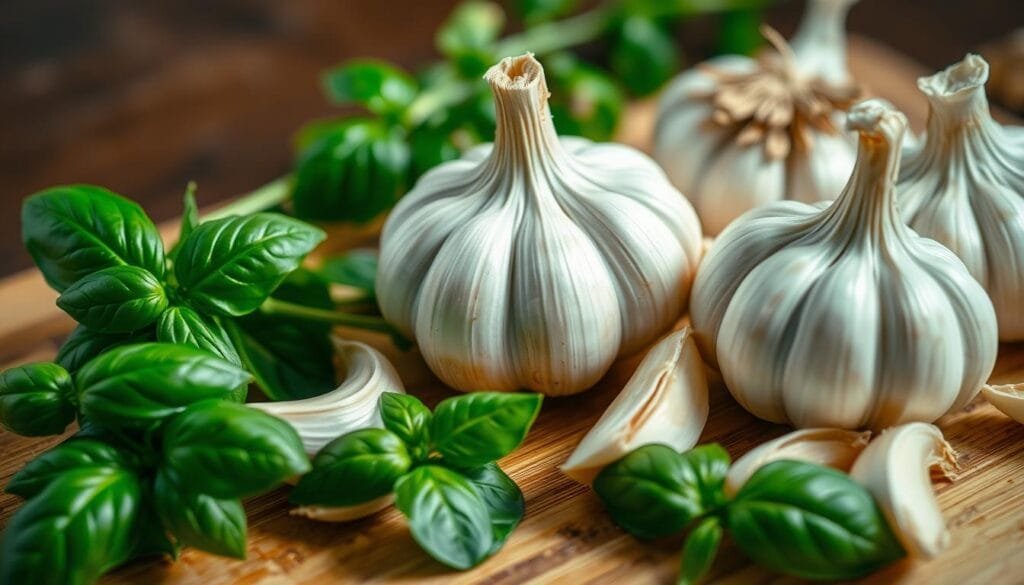
“Garlic has been used as a therapeutic agent for many illnesses over centuries and is considered beneficial for the prevention of various aspects of cardiovascular disease.”
Essential Herbal Remedies for Heart Health
Adding natural herbal remedies to your daily life can boost your heart health. Herbs like cinnamon, cardamom, ginger, and curcumin have shown benefits for the heart.
Cinnamon might help lower cholesterol and blood sugar. A 2013 study reviewed 10 earlier studies. It found that cinnamon can decrease total cholesterol, LDL cholesterol, and triglycerides.
Cardamom also looks promising for heart health. It may lower blood pressure and reduce blood clot risk, according to one study.
Ginger is another herb good for the heart. Eating ginger can lower high blood pressure risk. Aim for 2-4 grams daily.
Curcumin, found in turmeric, is great for the heart. It can prevent blood clots, lower cholesterol, and fight inflammation. This helps prevent heart attacks, strokes, and heart failure.
You can add these herbs to your meals or take them as supplements. Always talk to a healthcare professional first. By using these natural remedies, you can help keep your heart healthy.
| Herb | Potential Heart Health Benefits |
|---|---|
| Cinnamon | May lower cholesterol and blood sugar levels |
| Cardamom | May lower blood pressure and reduce blood clot risk |
| Ginger | May reduce high blood pressure risk |
| Curcumin (from Turmeric) | May prevent blood clots, lower cholesterol, and reduce inflammation |
Optimizing heart health is essential for overall well-being and longevity.
CoQ10: Nature’s Energy Booster for Your Heart
Coenzyme Q10 (CoQ10) is a key antioxidant for heart health. It’s found in high-energy organs like the heart, liver, muscles, and kidneys. As we get older, our CoQ10 levels drop, making supplements vital for heart health.
Understanding CoQ10’s Role in Heart Function
CoQ10 is vital for energy in heart cells. It’s great for those with muscle pain from statin drugs. Studies also show it can lower heart deaths in the elderly with selenium.
Dosage Guidelines and Safety Considerations
Doctors usually recommend 100–400 mg of CoQ10 daily. Foods like beef, poultry, fish, and oils have some CoQ10. But, statin drugs can lower its production.
CoQ10 supplements are mostly safe, with rare side effects like stomach issues and headaches. Always talk to a doctor before starting any supplement, even if it’s for a good reason.
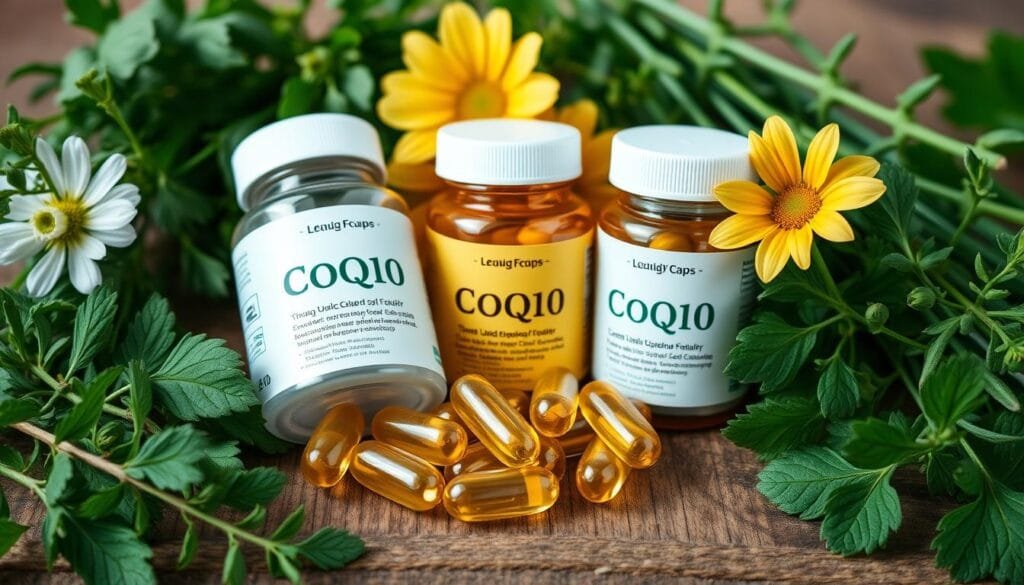
“Nature Made® CoQ10 200 mg Softgels are formulated to help support heart function.”
In summary, CoQ10 is a strong antioxidant for heart health. Knowing its role and following dosage guidelines can help keep your heart healthy and strong.
Powerful Benefits of Red Yeast Rice
Red yeast rice is a natural way to manage cholesterol and prevent heart disease. It’s made by fermenting rice with a special yeast. This process creates monacolin K, a natural statin.
Studies show it can lower total cholesterol, LDL (bad) cholesterol, and triglycerides. This makes it a good natural alternative to prescription statins.
Red yeast rice might help those who can’t take statins because of muscle pain. It’s a natural statin source. It also improves blood vessel flexibility, which is good for the heart.
But, the quality and amount of monacolin K in supplements can vary. Some may not work at all. Also, it can interact with certain medicines and isn’t safe for everyone.
| Potential Benefits of Red Yeast Rice | Potential Risks and Considerations |
|---|---|
|
|
Before trying red yeast rice, talk to your doctor. They can help you choose a good product. With the right guidance, red yeast rice can help keep your heart healthy.
Flaxseed: The Omega-3 Powerhouse for Heart Wellness
Flaxseed is a superfood that’s great for your heart. It’s full of omega-3 fatty acids and lignans. These nutrients help keep your heart healthy naturally.
How to Properly Prepare Flaxseed
To get the most from flaxseed, use it in the right way. Ground flaxseed is easier to digest and absorbs better than whole seeds. Freshly ground flaxseed is best because it keeps its nutrients and doesn’t spoil.
Incorporating Flaxseed into Your Daily Diet
Flaxseed is easy to add to your meals and snacks. Mix a tablespoon of ground flaxseed into your smoothie, oatmeal, or yogurt. You can also sprinkle it on salads, bake it into breads, or add it to soups and stews. Its nutty taste goes well with many foods, making it a great way to improve your heart health.
| Nutrient | Amount per 1 Tablespoon (7g) of Ground Flaxseed |
|---|---|
| Calories | 37 |
| Carbohydrates | 2g |
| Fat | 3g |
| Fiber | 2g |
| Protein | 1g |
Flaxseed is packed with omega-3 fatty acids and lignans. These help lower cholesterol levels and heart disease risk. Adding flaxseed to your diet is a natural way to boost your heart health and overall well-being.
Vitamin K2: The Overlooked Heart Health Nutrient
Vitamin K2 is a key player in heart health that often gets overlooked. It helps control calcium in the body, keeping it out of arteries and blood vessels. Eating foods rich in vitamin K, like leafy greens, can lower heart death risks.
Research shows vitamin K2 may also improve blood vessel function and reduce artery stiffness with age. Studies are looking into its role in preventing heart attacks and strokes. Vitamin K2 directs calcium to bones, helping keep arteries healthy and boosting heart wellness.
Vitamin K2 and Arterial Health
Vitamin K2 is vital for heart health because it activates a protein called matrix Gla-protein (MGP). MGP stops calcium from building up in arteries. This keeps blood vessels flexible and healthy, lowering atherosclerosis risk.
- Research links vitamin K deficiency to stiff arteries, heart failure, and high death rates from heart disease.
- More vitamin K2 may slow artery hardening, lower diabetes and heart disease rates, and cut heart death.
Vitamin K2 and Chronic Kidney Disease
People with chronic kidney disease (CKD) face a high risk of heart problems due to vitamin K deficiency. Up to 97% of those on hemodialysis lack enough vitamin K2, which is key for heart health and bone density.
Vitamin K2 supplements, about 360 mcg MK-7 daily, have reduced artery hardening in hemodialysis patients.
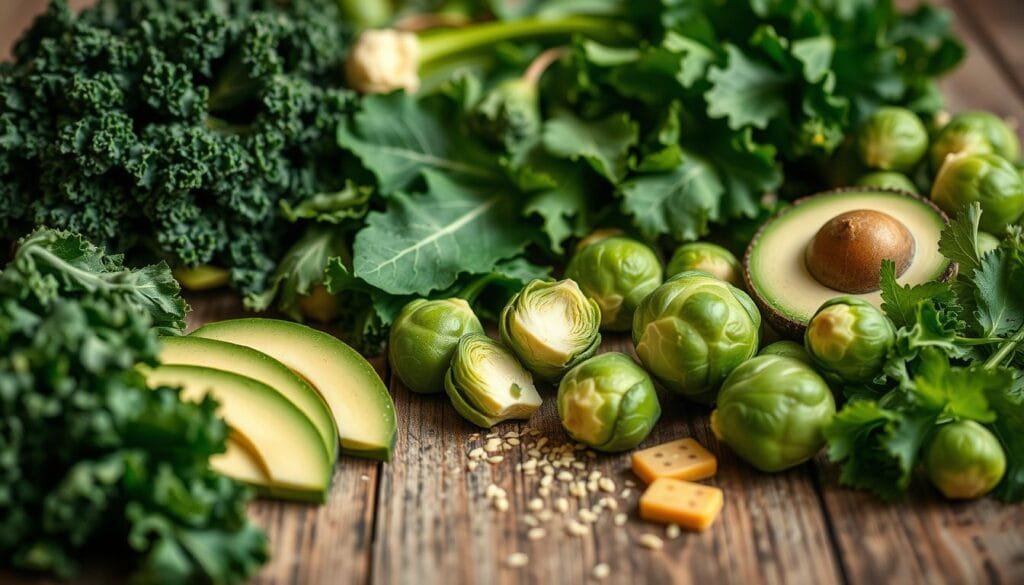
Eating foods rich in vitamin K, like leafy greens and fermented dairy, supports heart and bone health. Don’t overlook the importance of vitamin K2 for your heart.
Natural Supplements for Blood Pressure Management
Keeping blood pressure healthy is key for a strong heart. Many turn to natural options instead of meds. Hawthorn and herbal mixes are two such options that show promise.
Hawthorn and Its Cardiovascular Benefits
Hawthorn comes from small shrubs and has been used for heart issues for ages. It makes blood flow better to the heart. You can drink it as tea or take capsules to help lower blood pressure.
Combining Herbs for Maximum Effect
Adding hawthorn to other heart-friendly herbs might work even better. Garlic, celery seed, and parsley can help lower blood pressure. Ginger, thyme, and Chinese cat’s claw might too. But, always talk to a doctor before starting any herbal mix, as they can interact with meds.
| Herb/Supplement | Blood Pressure Reduction |
|---|---|
| Cinnamon | Systolic: 6.2 mm Hg, Diastolic: 3.9 mm Hg |
| Celery Seed Extract | Decreased systolic and diastolic blood pressure |
| Garlic | Systolic: 8.3 mm Hg, Diastolic: 5.5 mm Hg |
| Parsley | Lower systolic and diastolic blood pressure |
| Thyme | Reduced systolic blood pressure by inhibiting ACE |
Using a mix of natural supplements might help keep your heart healthy. But, always check with a doctor to make sure it’s safe and works for you.
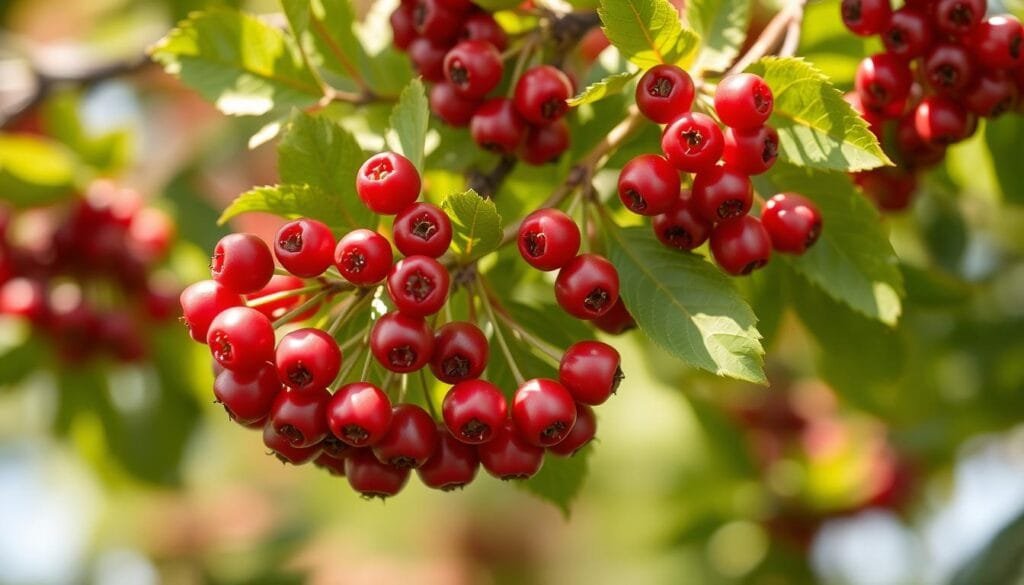
Safe Integration of Heart-Healthy Herbs into Your Daily Routine
I’m passionate about keeping my heart healthy. I’ve been looking into natural herbal remedies. But, I know I need to be careful, mainly if I’m on heart medications. Different herbs can interact with drugs in different ways.
Before adding new supplements, I talk to a healthcare provider. They help me understand how herbs might affect my heart health. They guide me on how to safely add these herbs to my diet.
I try to eat a balanced diet with lots of veggies, fruits, whole grains, and lean proteins. This helps me stay healthy. But, I always check with a doctor before making big changes. My heart’s health is too important to risk without their advice.
